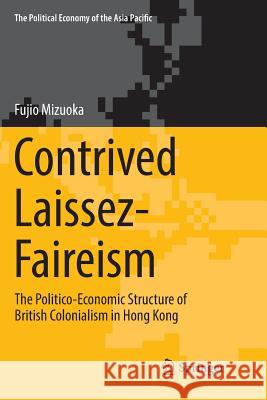Contrived Laissez-Faireism: The Politico-Economic Structure of British Colonialism in Hong Kong » książka
topmenu
Contrived Laissez-Faireism: The Politico-Economic Structure of British Colonialism in Hong Kong
ISBN-13: 9783030099114 / Angielski / Miękka / 2018 / 263 str.
Contrived Laissez-Faireism: The Politico-Economic Structure of British Colonialism in Hong Kong
ISBN-13: 9783030099114 / Angielski / Miękka / 2018 / 263 str.
cena 401,58
(netto: 382,46 VAT: 5%)
Najniższa cena z 30 dni: 385,52
(netto: 382,46 VAT: 5%)
Najniższa cena z 30 dni: 385,52
Termin realizacji zamówienia:
ok. 22 dni roboczych
Dostawa w 2026 r.
ok. 22 dni roboczych
Dostawa w 2026 r.
Darmowa dostawa!
Kategorie BISAC:
Wydawca:
Springer
Seria wydawnicza:
Język:
Angielski
ISBN-13:
9783030099114
Rok wydania:
2018
Wydanie:
Softcover Repri
Ilość stron:
263
Waga:
0.41 kg
Wymiary:
23.39 x 15.6 x 1.52
Oprawa:
Miękka
Wolumenów:
01











